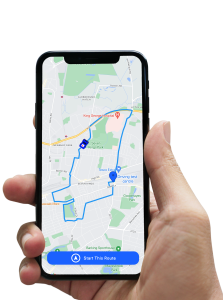Driving test cancellations are a common talking point for learners across the UK. With long waiting times at many DVSA test centres, spotting a cancellation can feel like finding gold dust. But how often do they actually come up—and how can you improve your chances of securing one?
In this guide, we’ll cover:
- How often do cancellations appear
- Why cancellations happen
- Tips for finding cancellations quickly
- Updates on DVSA policy
- Common reasons for failing your test
- Frequently asked questions
How Often Do Cancellations Come Up?
Cancellations occur daily across most UK test centres, but availability depends on demand. During peak times (such as summer months or after lockdown backlogs), cancellations are snapped up within minutes.
Learners who check regularly DVSA’s own booking system—stand a much better chance of securing a slot.
👉 Check official availability here: Book your driving test on GOV.UK.
On average, you can expect cancellations to appear:
- Every day in busy city centres like London, Birmingham, and Manchester
- Several times per week in smaller towns or rural areas
- Most often in the mornings when candidates cancel last minute due to illness or lack of preparation
You can also practise test routes from your chosen centre—so when your cancellation comes up, you’re fully prepared. RouteBuddy helps learners avoid these pitfalls by showing tricky junctions, roundabouts, and test routes in advance. Confidence on the road = higher chance of passing.
Start Practising for Your Test Today
Check Now
Why Do Driving Test Cancellations Happen?
Cancellations occur for a variety of reasons, including:
- Candidate illness or emergencies
- Instructor unavailability (e.g. car breakdown, double-bookings)
- Learner not being ready (pulling out due to lack of confidence)
- DVSA examiners cancelling (illness, strike action, or local centre issues)
Official DVSA cancellations policy: If your driving test is cancelled.
Tips for Securing a Driving Test Cancellation
- Check regularly – refresh the DVSA booking site throughout the day.
- Use cancellation apps – RouteBuddy and other apps monitor DVSA slots and alert you instantly.
- Be flexible with location – look at nearby test centres within 10–15 miles.
- Be ready to book immediately – cancellations can go within seconds.
- Practise in advance – don’t just book an earlier test for the sake of it; make sure you’re genuinely prepared.
Common Reasons for Failing the Driving Test
Even if you manage to book a cancellation, being ready for the big day is key. The DVSA’s top reasons for failing include:
- Not making effective observations at junctions
- Not using mirrors properly when changing direction
- Incorrect positioning when turning right at junctions
- Not responding correctly to traffic lights
- Poor steering control
You can find the DVSA’s official list of common faults here: DVSA – Top reasons for failing the driving test.
Final Thoughts
Driving test cancellations come up regularly, but they don’t last long. By staying flexible, using the right tools, and being genuinely test-ready, you’ll maximise your chances of securing an earlier slot—and passing when it matters most.
FAQs
1. Do cancellations come up more often at certain times?
Yes—weekday mornings are the most common time, but weekends before bank holidays can also see a spike.
2. Can someone else take my cancelled slot?
No. Once you book it under your licence details, it’s reserved for you.
3. Is it worth paying for a cancellation app?
If you’re serious about getting an earlier test, yes. Many apps offer free trials, and the cost is often less than the money lost if you fail and need extra lessons.
4. What happens if the DVSA cancels my test?
You’ll be offered a new date at no extra charge. In some cases, you may be entitled to expenses—details are here: Compensation if your driving test is cancelled.
